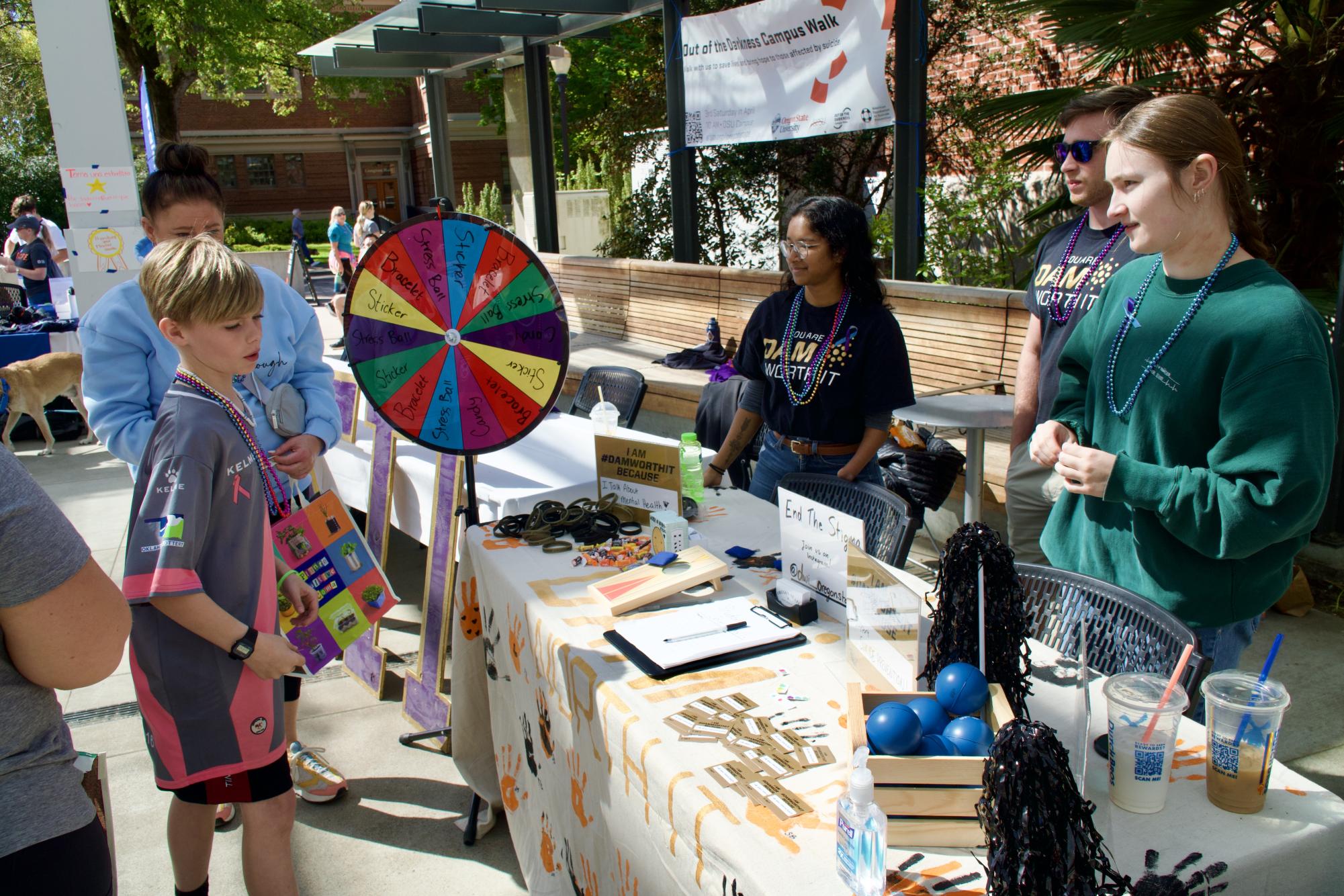Dam Worth It is a mental health campaign working to raise awareness about mental health and end the stigma around mental health, especially amongst student athletes on college campuses.
DWI was started in 2017 by two Oregon State University student athletes, men’s soccer player Nathan Braaten and gymnast Taylor Ricci after losing teammates to suicide.
The two started DWI as a campus campaign, and in May 2018, received a $60,000 grant from the Pac-12 to build out the DWI campaign and message. In November 2020, DWI launched as a 501(c)(3) Non-Profit Organization.
May is Mental Health Awareness Month, and Riley LeCocq, the president of DWI, and the team are preparing for DWI Week, May 13-16. They are partnering with OSU Counseling and Psychological Services, who LeCocq said have been working with DWI since Braaten and Ricci founded it.
According to LeCocq, DWI started with ties to OSU athletics, but when they became a national non-profit, DWI decided to detach from OSU to spread the national message of ending stigma around mental health. There are currently three other branches at San Jose State University, Cal Poly Humboldt and Valparaiso University.
“We don’t fall under any campus organization but we have our roots here,” LeCocq said. “Oregon State is the first and by far the biggest school that has a branch.”
With DWI branches across different universities, individual branches have the autonomy to decide what is best to serve their own campuses. The current OSU branch will continue to be a part of the national non-profit and within the next academic year will be housed under athletics. Athletics will continue to provide support for DWI and other mental health initiatives for student athletes.
This year, the Student Athlete Advisory Committee created the Mental Health Committee to support student athletes and open up a conversation about mental health.
“With student athletes, it’s a high-stress environment,” said Colin Lindquist, co-chair of the SAAC Mental Health Committee. “Mental health is something that’s not necessarily talked about within athletics. There’s the thought that athletes need to be strong and tough all the time. While that is true in a lot of aspects, being strong and tough sometimes takes being open about our mental health and getting the help we need.”
OSU also launched the Counseling Holistic Advancement and Mental Health Performance, a group of mental health clinicians specializing in supporting student athletes.
“All of these efforts all connect back to our mission,” LeCocq said. “We are all about story sharing, we are all about working with existing systems and we’re not trying to reinvent the wheel. Anything that we do matters.”
According to a student athlete well-being survey conducted by the National Collegiate Athletics Association, rates of mental exhaustion, anxiety and depression are 1.5 to two times higher than before the COVID-19 pandemic.
“Over the last two years, what I’ve realized is that paying attention to your mental health and how it affects your performance is one of the most important aspects of being an athlete,” said Tristin Vanderlind, senior captain of the men’s rowing team. “As many resources as possible dedicated to mental health will cultivate a more inclusive environment for everybody.”















































































































